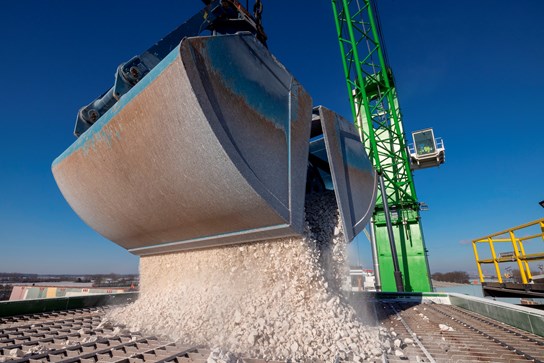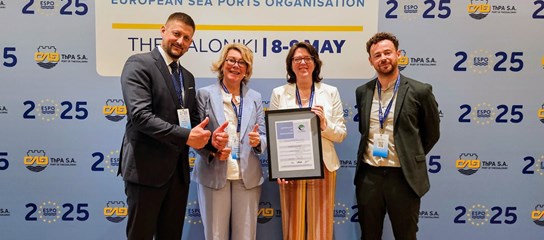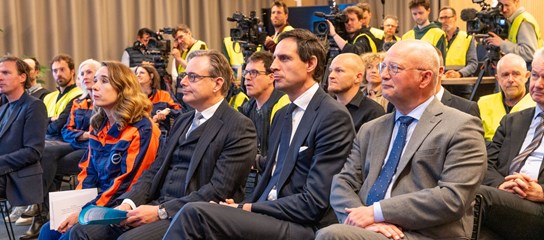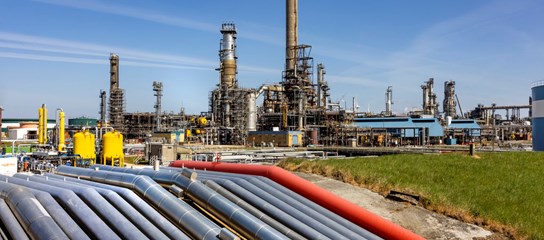Opinion article: German, Belgian and Dutch ports: Europe, join forces to preserve the industry
On the eve of the European industry summit on 17 and 18 April, we call on European government leaders to do the same and find a solution to the deteriorating position of our industry. Because nowadays, when we sit around the table, we no longer talk about tonnes of cargo, but about how we can unite to secure a sustainable future for industry in Europe.
Making our society more sustainable
The manufacturing industry in the triangle between the Flemish-Dutch ports and the German Ruhr area is responsible for a large share of European production. Companies in the chemical and steel industries are located in the ports because of the supply of (still largely fossil) raw materials and energy. These are substantial emitters with a major responsibility to reduce their carbon emissions quickly. These companies also enable us to make electronics, medicine and mattresses in Europe. This is also the case for wind turbines, insulation materials and solar cells. The largely international head offices, however, are now wondering whether they still see a future in Europe. This is of huge concern to us as industry, in particular, can make a huge difference in making our society more sustainable.
Ports are literally connected
As ports, we therefore want to take the lead in improving the investment climate for industry in Europe so that the relevant companies want to invest in sustainability. The companies in the triangle are, quite literally, connected by a network of pipelines. They cooperate, supply raw materials to each other and share expertise. The ports and industrial clusters are all adapting infrastructure to tomorrow's raw materials and energy, such as hydrogen, so that even a sustainable industry can continue to cooperate efficiently. That also means planning and investing together. And, to be fair, we could do that more often and more effectively at times.
A shared vision from an international perspective
As the landlords of large industrial complexes, we aim to work on the basis of a shared vision. Space in ports is already scarce and processes such as more sustainable, circular production require much more space and may sometimes have a temporary, additional environmental impact. We therefore want to work together to figure out which activities we really need in Europe. Where is that space available, both physically and in terms of regulation? What will our ports and industry look like in 2050 when they have become climate neutral? A common answer to these questions will only be found and succeed if our governments also look at the industry from an international perspective.
So we ask that European government leaders, like us, stand alongside industry. Energy-intensive companies face much higher costs in Europe than in other parts of the world and have to cope with more complex laws and regulations. And, in the United States, the massive Inflation Reduction Act support package is making it more attractive for companies to invest in the necessary renewal there. If governments do nothing in return, investment in sustainability in Europe will stall and the industry will move outside Europe. Existing plants will then be kept operational for as long as possible as they age and will eventually shut down. That means more imports from outside Europe with negative consequences for the climate, our strategic autonomy and prosperity.
A transition and maximum effort from everyone
More and more people are suggesting that, if further money must be spent, we may be better off losing industry rather than retaining it. We understand their hesitation. Industry does not come without certain disadvantages and will not stop using fossil resources and emitting CO2 overnight. This requires a transition and maximum effort from everyone. We hope that industry will find this in Europe; after all, it provides crucial support for our ports, along with logistics and the energy sectors. The sectors represent about 63 billion euros in added value and over half a million jobs. That is why European government leaders need to merge climate and industrial policies in their five-year plan, as recently highlighted by European business in "The Antwerp Declaration for a European Industrial Deal." Let's maintain healthy competition and strengthen our cooperation on the energy transition.
- Boudewijn Siemons, CEO Port of Rotterdam
- Daan Schalck, CEO North Sea Port
- Jacques Vandermeiren, CEO Port of Antwerp-Bruges
- Markus Bangen, CEO Duisburger Hafen AG




